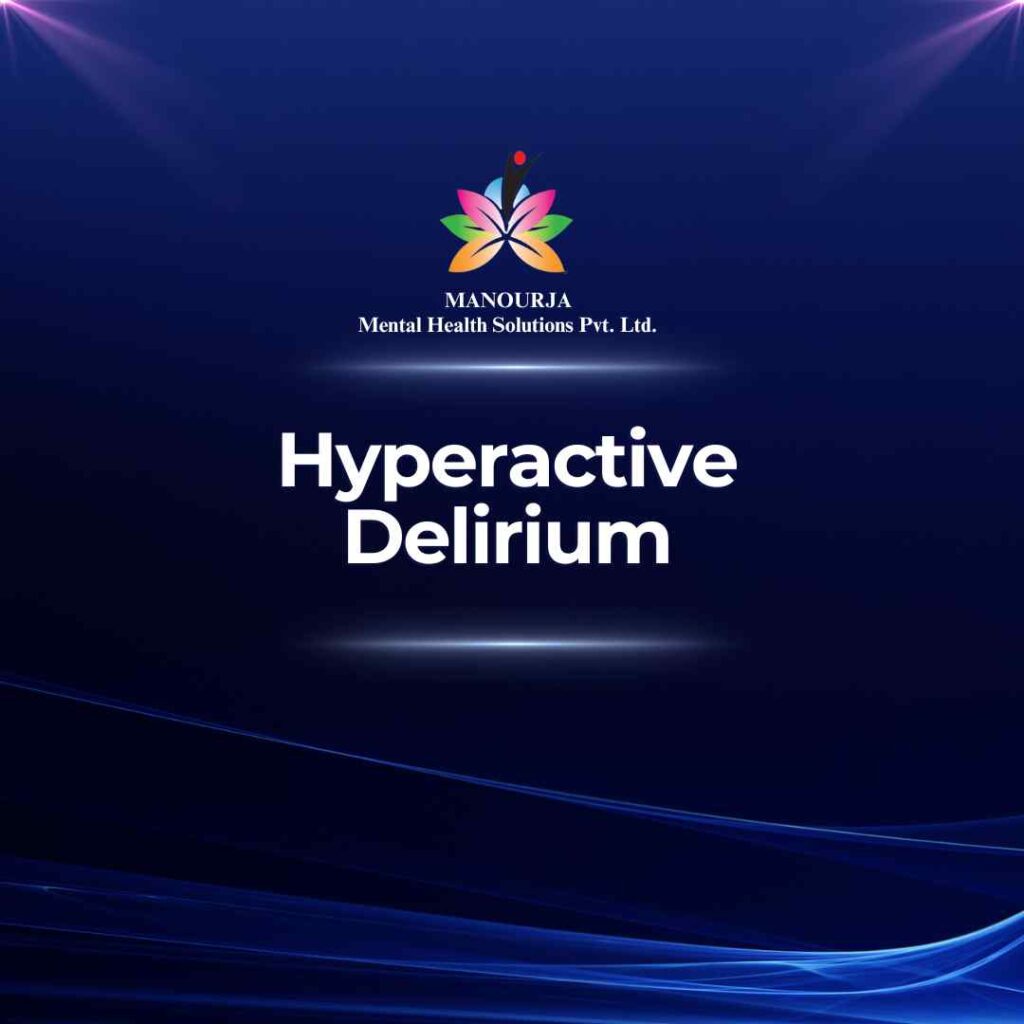Hyperactive Delirium

Hyperactive delirium is a severe and acute disturbance in mental function characterized by heightened agitation, restlessness, and disorientation.
Here’s a breakdown of its meaning, characteristics, forms, and treatment:
Meaning
Hyperactive delirium is a subtype of delirium, a condition marked by sudden and severe changes in cognitive function, including attention, awareness, and perception. It often occurs due to underlying medical conditions, such as infections, metabolic disturbances, medication side effects, or withdrawal from substances.
Symptoms
- Agitation and Restlessness: Individuals with hyperactive delirium exhibit increased motor activity, restlessness, and agitation. They may pace, fidget, or exhibit purposeless movements.
- Disorientation: There is confusion and disorientation about time, place, and person. The affected individual may not recognize familiar surroundings or people.
- Hallucinations and Delusions: Hyperactive delirium can involve sensory disturbances, such as hallucinations (seeing or hearing things that aren’t present) or delusions (false beliefs). These experiences can contribute to the individual’s agitation and distress.
- Emotional Instability: Rapid mood swings and emotional lability are common features of hyperactive delirium. The affected individual may exhibit irritability, anxiety, or fearfulness.
Forms
Delirium can present in different forms:
- Hyperactive Delirium: Characterized by increased agitation, restlessness, and hyperactivity.
- Hypoactive Delirium: Involves decreased activity, lethargy, and slowed responsiveness.
- Mixed Delirium: Combines features of both hyperactive and hypoactive states, with fluctuating levels of activity and arousal.
Treatment
- Addressing Underlying Causes: Identifying and treating the underlying triggers of delirium is crucial. This may involve managing medical conditions, correcting electrolyte imbalances, addressing infections, or adjusting medications.
- Environmental Management: Creating a calm and supportive environment can help alleviate symptoms of hyperactive delirium. Measures such as reducing noise and stimulation, maintaining a consistent routine, and ensuring adequate lighting can promote a sense of security and comfort.
- Medication Management: In some cases, medications may be prescribed to manage symptoms of agitation, hallucinations, or anxiety. Antipsychotic medications or benzodiazepines may be used cautiously to alleviate distress and promote relaxation, but their use requires careful monitoring due to potential side effects.
- Multidisciplinary Care: Managing hyperactive delirium often requires a multidisciplinary approach involving healthcare professionals such as physicians, nurses, pharmacists, and mental health specialists. Collaborative efforts are aimed at addressing the diverse needs of the individual, optimizing medical care, and ensuring safety and comfort.
Overall, prompt recognition and management of hyperactive delirium are essential to minimize distress, prevent complications, and promote recovery.
At MANOURJA, we believe in the transformative power of counseling. Our experienced therapists offer a safe and supportive space where you can explore your thoughts, emotions, and challenges. Through personalized counselling sessions, we’ll work together to develop coping strategies, build resilience, and achieve lasting positive change. Discover the path to a healthier, happier you with MANOURJA counselling services.
MANOURJA Rehabilitation Services
At MANOURJA, we’re dedicated to helping you in rebuild your life, after difficult times. Our rehabilitation services focus on understanding what you need to move forward, whether you’re recovering from addiction, trauma, or any psychological – social challenges. We create personalized plans, that are all about helping you, regain your strength and find hope again. With a caring team by your side, you’ll have the support to make real progress and take steps toward a brighter, healthier future.
